Oxford school shooter's long, emotional hearing ends with drama, name calling and outrage
The hearing to determine whether school shooter Ethan Crumbley is eligible to spend the rest of his life in prison ended on a dramatic note Friday as the prosecutor and defense lawyer went head-to-head over whether the teenager is mentally ill — a feud that sparked anger and frustration in a courtroom already boiling over with emotion.
The defense maintains the teenager is mentally ill, though the prosecution says he is not — all while the victims' parents are still grieving, asking questions and pleading for justice.
After four days of grueling testimony spread over three weeks from health experts, police, students and staff who witnessed the horror, Crumbley's mental health turned out to be the most debated topic at his Miller hearing, a mandatory proceeding that will help decide whether Crumbley is eligible for a life-without-parole sentence.
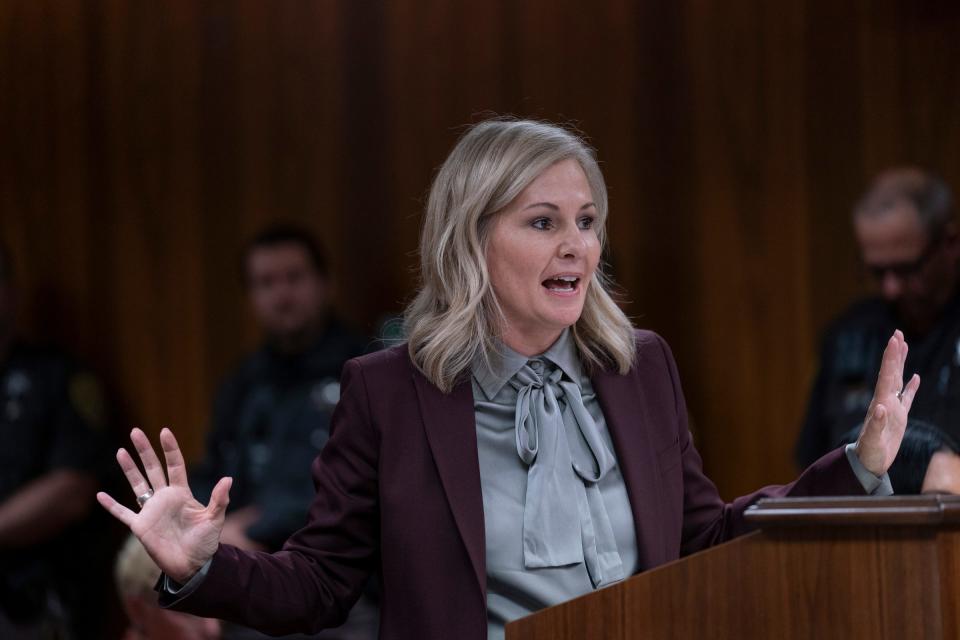
The prosecution argues Crumbley does not meet the definition of mentally ill under state law. Prosecutors say that he knew right from wrong on the day of the massacre, was not psychotic or hallucinating and should never be free again for murdering four classmates and injuring seven others at Oxford High School on Nov. 30, 2021.
The defense adamantly disagrees, arguing a boy who sees demons, hears voices, is suicidal, depressed, anxious and begs his parents for help is mentally ill.
Prosecutor: Defense claim is 'ignorant and unprofessional'
The controversy reached a boiling point in court when defense attorney Paulette Loftin asserted the prosecutor has argued both sides of Crumbley's mental health status. Specifically, she said the prosecutor has contended that Crumbley's parents neglected their son's mental illness in her effort to make them the first parents convicted of a crime in a school shooting, while also arguing that the teen is not mentally ill in her quest to lock him up forever.
“You can’t stand in two different courtrooms and argue two different things,” said Loftin, who cited the prosecution's arguments in its case against James and Jennifer Crumbley, who face involuntary manslaughter charges for buying their son the gun he used in the shooting and not disclosing that when they were summoned to the school over his troubling behavior.
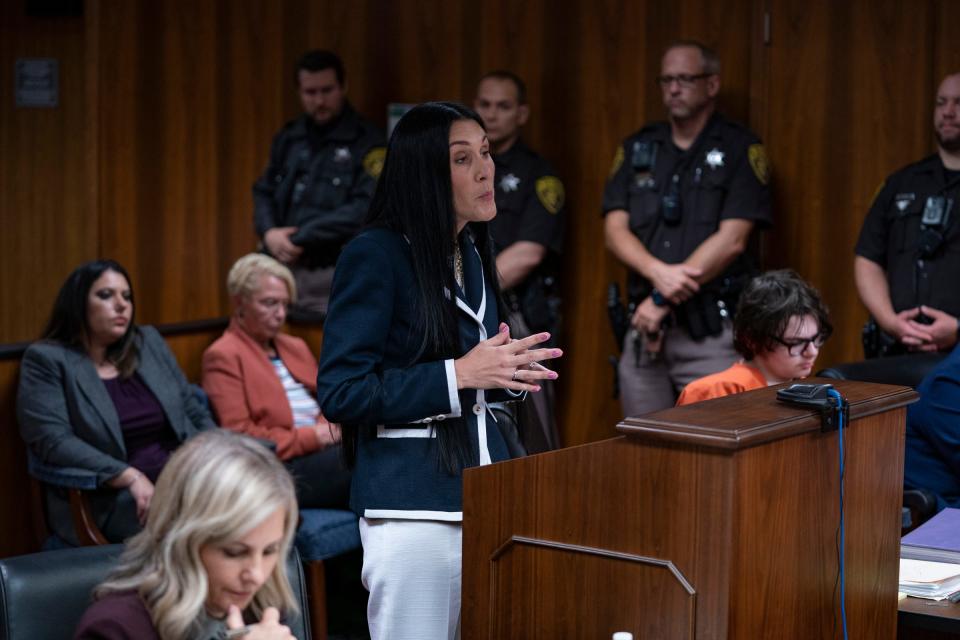
In the parents' case, the prosecution has stated: “They knew their son was depressed. ... These parents knew he had reported hallucinations … had asked to go to the doctor … They did nothing.”
Loftin's tactics drew a sharp rebuke from Oakland County Prosecutor Karen McDonald.
"To stand here and say that I’m saying something inconsistent — is ignorant and unprofessional," McDonald said at the closing of the hearing.
In McDonald's closing statement Friday, she explained her position on the mental health issue. She said that there's a distinction between mental health issues and mental illness. And while she concedes that Crumbley had a troubled childhood, showed disturbing behavior — such as torturing baby birds — and asked for help he didn't get, she said, "I have not ever stated that he had a quote, mental illness."
But what Crumbley did was so horrific, so extraordinary, McDonald said, that he doesn't deserve to ever live freely again, not after callously taking the lives of 16-year old Tate Myre, 17-year-olds Madisyn Baldwin and Justin Shilling, and 14-year-old Hana St. Juliana.
While seeking a life without parole sentence for a juvenile was not an easy decision, she said, Crumbley presents the rare case that warrants the punishment.

"There has never been an offender like this one. This is a person who killed his four classmates solely for the act of killing. It wasn’t settling a score," McDonald said. "He didn't even know them. Tate. Hana. Madisyn. Justin — they had their whole lives in front of them."
But Crumbley violently ended their lives, she said, while "his life will be spared, just the way he wanted."
'They were helpless — like the birds'
In imploring Oakland County Circuit Court Judge Kwame Rowe to lock him up forever, McDonald also argued that Crumbley didn't just snap and shoot up his school, but rather planned it ahead of time, wrote about it, texted about it, made a manifesto about it — and made sure he would stay alive so he could witness the suffering. She also described the rampage through the school — how Crumbley killed victims he didn't even know, including Madisyn, whom McDonald said Crumbley shot “at point-blank range” as she crouched on the ground, curled into a ball with her hands over her head.
"You haven’t heard me stand up here and call him a monster," McDonald said. "But I’m not going to shy away from these horrific facts and the evidence."
She continued: "Rarely, rarely, something very rarely comes along" that warrants life without parole for a juvenile. "And it did, and he's sitting a few feet from me. Please give him a life without parole."
The Miller hearing stems from a 2012 U.S. Supreme Court decision that banned automatic life without parole for juvenile killers.
The victims, she stressed, deserve justice.
“They were helpless,” McDonald said, “like the birds.”
The defense's final argument: No one helped Ethan
In trying to spare her client life in prison, Loftin began her closing argument by citing the teenage shooter’s own words, as expressed in text messages to a friend and in his journal, where he wrote: "I have fully mentally lost it after years of fighting my dark side. My parents won’t listen to me about help or a therapist."
Loftin described her client as a lost and severely depressed teenager who was spiraling out of control in the months before the shooting, hallucinating and contemplating suicide, begging for help but not getting any — as he expressed in his journal and texts.
“I feel like I’m in a time loop of sadness … I hate myself … I barely made it through ninth grade mentally, then I made it to tenth grade and I fully lost control … I’m at my breaking point.”
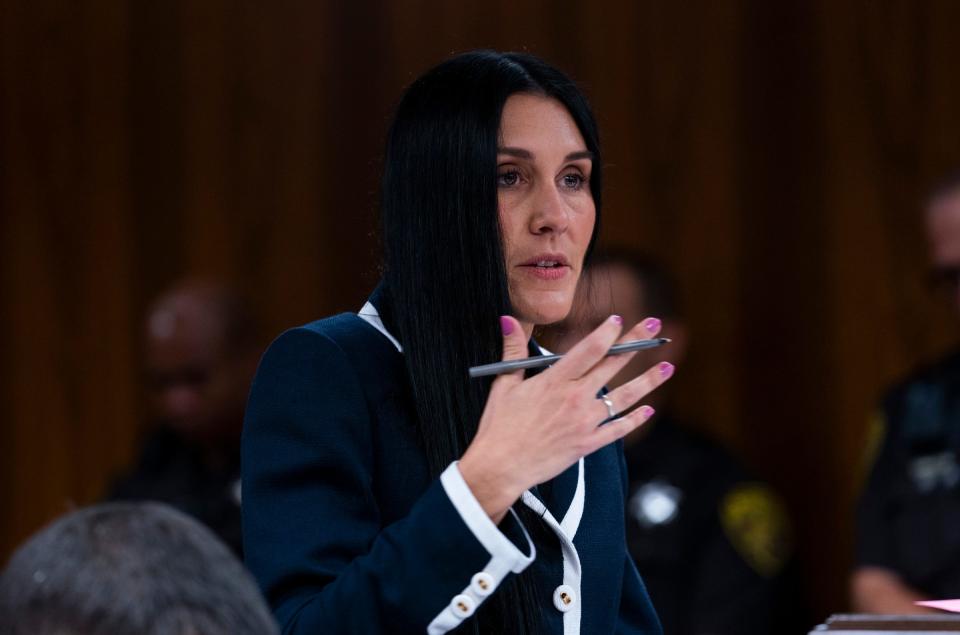
“Ethan was at his breaking point, and no one stepped in,” argued Loftin, who laid much of the blame on Crumbley’s parents, saying they long neglected him and missed crucial signs in the months before the shooting.
“He was failing almost all his subjects. He sat alone at lunch. His only and trusted friend had left,” Loftin said. “He was hallucinating. He was hearing voices. He was suicidal. He was anxious.”
As Loftin noted, Crumbley wrote on a math sheet on the day of the shooting: “The thoughts won’t stop, help me … The world is dead. My life is useless.”
'No one cared about him'
But his parents, who were summoned to school over the note, didn't bring him home that day, but rather went back to their jobs — his dad making a DoorDash run.
“Ethan was overlooked,” Loftin argued. “Ethan, in his own way, crying out for help, still went unnoticed.”
“He sat there. His parents didn’t greet him, or touch him. There was no question at that point that no one cared about him,” Loftin argued, noting these weren't just her words, but the prosecutor’s words at the parents’ preliminary exam.
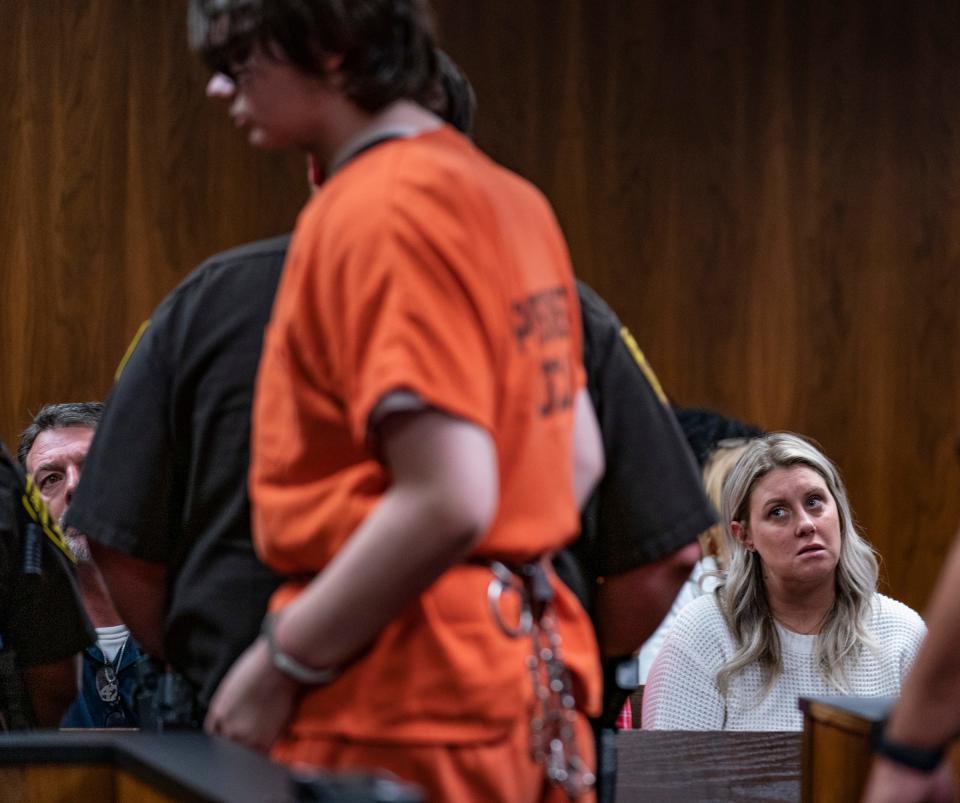
Loftin portrayed James and Jennifer Crumbley as selfish and uncaring parents who often left their son home alone starting at a very early age, argued constantly, yelled accusations of affairs at one another, drank excessively and left a troubled child to “cope with his fears by himself.”
“It was glaringly obvious that he was not OK,” Loftin said, stressing “His parents didn’t embrace him … you know what they did? They bought him a weapon.”
More: Ethan Crumbley's former neighbor opens up: He ‘didn’t have a prayer as a child’
Loftin also blasted the parents over their actions on the day of the shooting.
“As hundreds of parents drove way above the speed limit to make sure their kids were still alive, here’s what his parents did: His dad went home to check for a gun. His mom texted him, ‘Don’t do it,’ “ Loftin said. “They knew he was in a crisis.”
Defense: 'Give Ethan a chance'
Loftin urged the judge to give Crumbley the opportunity to turn his life around in prison. His brain is still developing, she stressed, and "there's no expert opinion that says he can't be rehabilitated."
“We ask that you give Ethan the chance to show that he will do good things with this time (in prison),” Loftin said, noting that should he ever get a shot at parole in the future: “Ethan has to prove himself, he must show the parole board that he has changed.
“If he doesn’t,” she added, “he will not get out.”

Rowe said he would issue a decision on Crumbley's eligibility for life without parole in 35-45 days, and set a sentencing date after that.
Expert: Scary movies helped trigger Crumbley's hallucinations
The last witness to testify at Crumbley's Miller hearing was Dr. Lisa Anacker, a forensic psychiatrist whom the prosecution used to discredit the defense's claim that Crumbley is mentally ill.
Anacker testified that Crumbley is not mentally ill, and that just because he reported hearing voices and seeing demons, that doesn’t mean he was psychotic. She said that Crumbley was fascinated by the supernatural, was left home alone as a child and watched horror movies, so his imagination as a child was heightened.
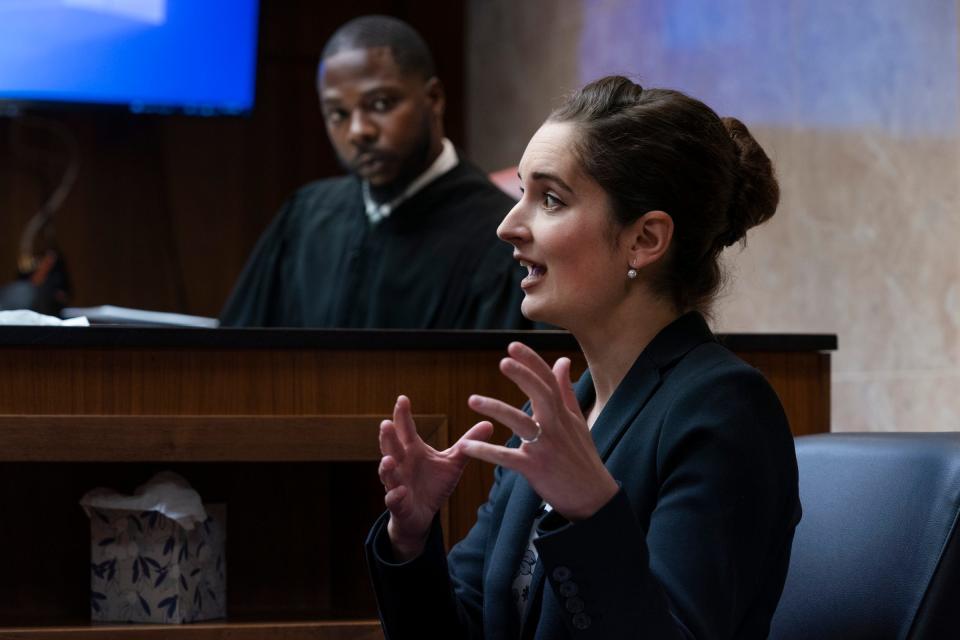
But Loftin wasn't having it.
"You mean to tell me, when he's hearing voices, seeing demons … hearing toilets flushing," that he "must have been watching scary movies … that's why he's reporting that?" Loftin asked.
Anacker stuck to her position, maintaining that Crumbley does not suffer from psychosis, and knew what he was doing during, before, and after the shooting.
"He specifically told me he was not psychotic or hallucinating," Anacker testified. "I don’t think he was lying.”
Loftin then asked Anacker about the inner voices that Crumbley said were in his head.
"Is it normal that a 15-year-old boy has a voice in his head telling him to kill?" Loftin asked.
"No, it’s not normal," Anacker said. "But it’s not psychotic."
An alleged suicide attempt
On cross-examination by the defense, Anacker also disclosed new details about Crumbley, including that he told her he attempted suicide in the month before the Oxford shooting by taking eight to 10 allergy pills. She also testified that on Crumbley's 15th birthday he got upset and told his parents: "I want to see a therapist." She said his parents did not arrange an appointment.
Anacker made the disclosures as Loftin sought to discredit defense experts' finding that Crumbley is not mentally ill and asked her to update the court about Crumbley's childhood.
A desperate moment for Crumbley's father
Anacker testified that when Crumbley was in elementary school and living in the state of Washington, he heard his mother yelling on the phone in the middle of the night. Jennifer Crumbley told Ethan that his dad was at a waterfall threatening to commit suicide, Anacker said.
According to Anacker, Ethan Crumbley was put on the phone with his dad, crying, telling him to come home and not kill himself.
Another time, Anacker said, Crumbley recalled taking half of one of his mom's sleeping pills, and wound up in the driveway walking in shorts, saying he was seeing someone.
"To your knowledge, he never saw a doctor?" Loftin asked the expert.
He did not, Anacker responded.
Psychiatrist: Crumbley did not display psychosis during massacre
Anacker testified earlier that Crumbley was not hallucinating when he carried out the mass shooting, did not hear any voices telling him to hurt people, and that being depressed or anxious does not make one psychotic. She met with Crumbley once in 2022 for five hours.
Her testimony clashed with that of two defense experts, including a psychiatrist who met with Crumbley 100 times and diagnosed him with major depressive disorder; and with psychologist Colin King, who met with Crumbley six times and subjected him to a dozen tests that left him with this conclusion: “The defendant is, without question, someone who is mentally ill.”
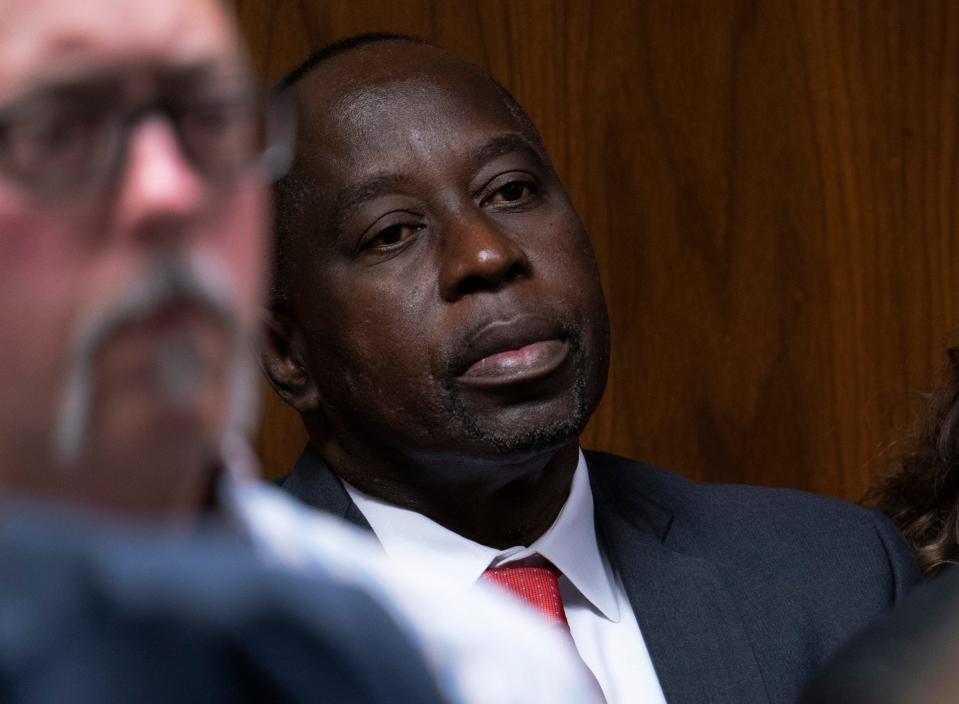
King diagnosed Crumbley with depression marked with severe psychosis
Anacker, who has evaluated more than 500 criminal cases in the last five years, disagrees.
She evaluated Crumbley on March 15, 2022, and concluded that he did not meet the criteria for having a “substantial disorder,” specifically on the day of the shooting.
'What we don’t see is any signs of bizarre behavior'
Anacker also disputed the defense expert’s finding that two videos shown of Crumbley in prison this year blaming God for the shooting, and yelling "I'm sorry" show he is mentally ill. She also didn't give much weight to the manifesto made by Crumbley on the eve of the shooting. In that videotape, Crumbley says: “I am the demon.”
“Those videos tell us about the defendant’s mental state during that one incident,” Anacker testified. “It tells us nothing about what his mental state was like in 2021 when the shooting occurred.”
According to Anacker, on the day of the shooting and after he surrendered: “The defendant was communicating clearly. He was calm and collected. What we don’t see is any signs of bizarre behavior.”
Crumbley, she said, 'understood the nature of what he was doing'
“I can absolutely understand how it would be difficult to imagine how a sane person would commit mass murder," Anacker testified. "But the research does show us that mental illness does not account for most of the violence in our country.”
As for Crumbley, she concluded: "He was criminally responsible, and he understood the nature of what he was doing."
'Don’t do it, don’t do it, you are not going to do it'
Loftin also asked Anacker about a statement that Crumbley made: that he felt like his thoughts to commit the shooting was “a prophecy of my future and I had to fulfill it.”
Anacker recalled the statement, but said Crumbley never told her that he committed the shooting because it was a prophecy, only that "he had been thinking about this for months and months."
Anacker also testified about Crumbley's thoughts on the day of the shooting. She said he told her that as he was exiting the bathroom before he opened fire, he was thinking: “Don’t do it, don’t do it, you are not going to do it.”
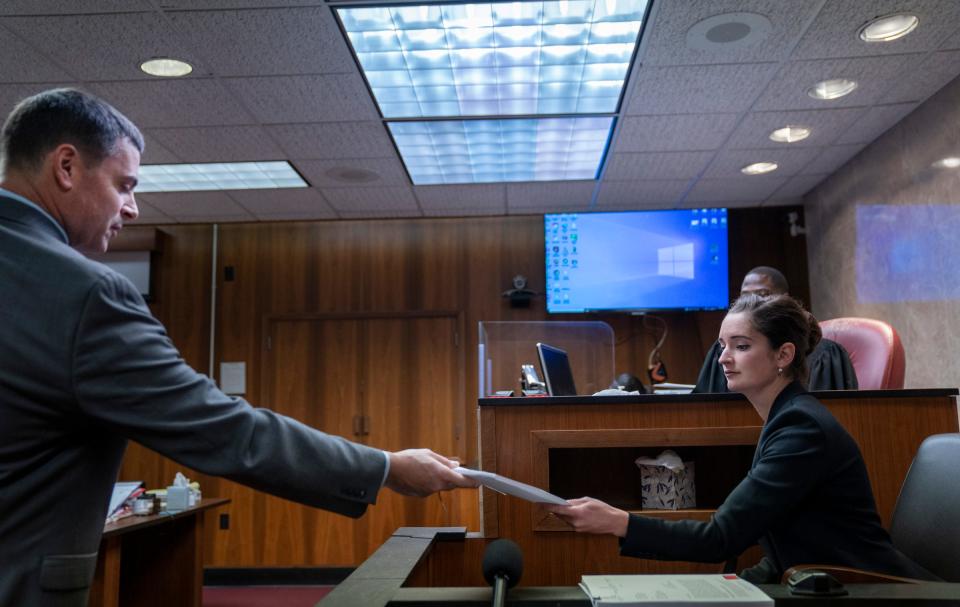
Crumbley also told her that when he was firing his gun, he was looking at his hand, not the people he was shooting.
After he shot Shilling in a bathroom, Crumbley told Anacker that he told a second classmate that he could go and thought: "What have I done?" Anacker confirmed that Crumbley told her that after he killed Shilling, he unloaded the gun, put it on top of a trash can, saw police and surrendered.
The classmate who fled from the bathroom after Shilling was shot was Keegan Gregory, now 16. He previously testified that he had been squatting on a toilet in the bathroom when Crumbley came in and, eventually, ordered Shilling to come out of the stall they were hiding in and shot him.
Gregory testified that the shooter then came back into the stall and motioned for him to come out and signaled for him to go by Shilling’s body. When he got the chance. Gregory said, he bolted.
"I ran behind his back behind the door," Gregory testified. "I think when I saw his body, I realized that if I stayed, I was gonna die ... I just kept running as fast as I could."
Contact Tresa Baldas: tbaldas@freepress.com. Contact Gina Kaufman: gkaufman@freepress.com.
This article originally appeared on Detroit Free Press: Mentally ill or not, Oxford school shooter's fate is in judge's hands

